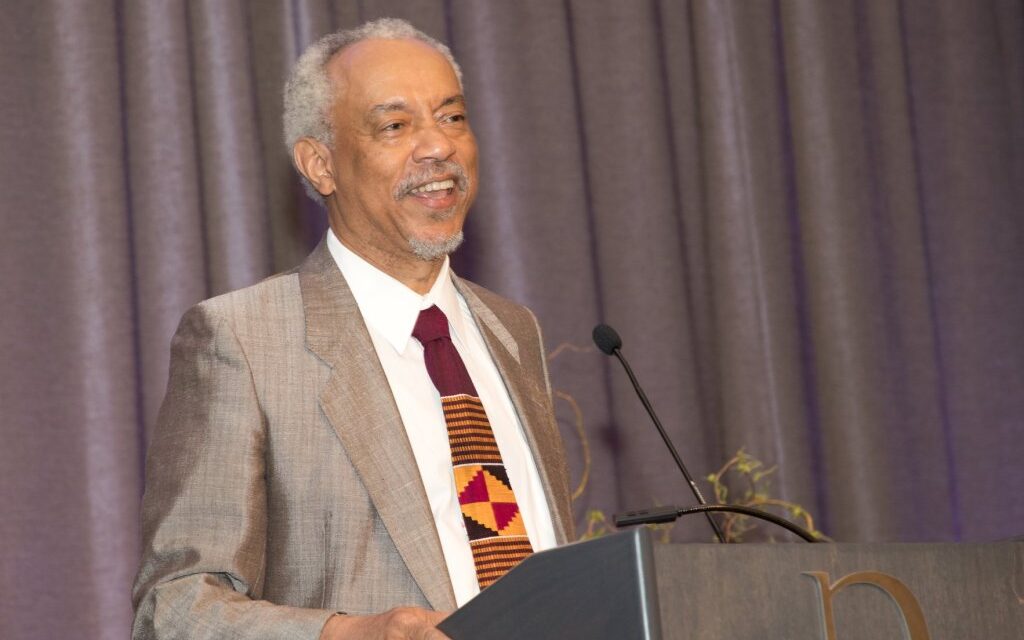By Ronnie Herndon
In America today, children have the highest official poverty rate compared to any other age group. Over 16 percent of our nation’s young people live below the federal poverty line, and in many parts of Portland the rate is even higher. In east Portland, one out of every four children is in poverty.

The good news is that our country’s leaders created programs to help, and I’m proud to say I’ve dedicated most of my life to one of them: the federal Head Start Program. Since 1975, when I was first named director of Albina Head Start, I’ve had the privilege of serving our community by providing educational opportunities for low-income Pre-K students and watching the program flourish. Today, our program is regarded as one of the top Head Starts in the country, serving nearly 1,000 families, employing a staff of over 300, and implementing innovative curriculum like our Mandarin dual language program, the first of its kind nationally.
For some of our families, our program goes far beyond offering early learning and literacy. We also provide crucial health screenings, family support and address children’s nutritional needs by providing breakfast, lunch and an afternoon snack.
The results are compelling. Children who participate in Head Start are more likely to finish high school, more likely to go to college and more likely to graduate college.
But there’s also bad news.
This month, Albina filed a federal lawsuit against the U.S. Department of Health and Human Services (HHS) to defend itself against a misapplied rule that could force the program – and all the children it serves – to lose federal funding.
The issue boils down to a simple misinterpretation. In 2007, under the federal Head Start Act’s reauthorization, Congress directed HHS to force programs with system wide problems to recompete for their funding. Congress designated the term “deficient” to characterize such programs with systemic issues. And it makes sense because any Head Start that is systemically “deficient” in carrying out the program’s overall mission should require a course correction.
But in Albina’s case, our program was unfairly deemed “deficient” not due to a systemwide problem, but a single incident of an employee breaking our rules – an anomaly in our otherwise clean, nearly 60-year track record.
In 2023, a teacher assistant threw a toy block at a student’s leg, acting completely outside the scope of their employment, contrary to their many hours of training, and contrary to our policies and procedures. We reviewed the incident, confronted the employee and terminated their employment within three hours of the incident, then reported the incident to state authorities, the student’s parent and HHS all within 24 hours. Incidents like these unfortunately happen in every sphere of society, no matter the precautions taken by an organization.
Our actions perfectly followed the requirements of Head Start regulations on personnel matters, but HHS still incorrectly determined that the isolated incident should result in a “deficiency” finding against Albina as an entire organization. Congress expressly intended to prevent this use of “deficiency,” even indicating that it impedes the greater mission of Head Start because “recompetition of high quality programs could have the unintended effect of undermining program quality and decreasing the efficiency of Head Start expenditures.”
While our funding is at risk, this lawsuit is more than just dollars and cents. It’s about people. It’s about the futures of our students. It’s about the morale of our teachers and staff, who ask me if they’re going to be able to pay their bills. It’s about our marginalized communities that are barely surviving. And it’s about the other Head Start programs that might also be affected by unfair “deficiency” findings but lack the resources to push back. According to HHS, roughly half of all “deficiency” findings result from isolated incidents like the one at Albina, not systemic failures of a Head Start program.
The decision to take the federal government to court was not easy. Some may believe if someone “strikes you on the cheek, offer the other also.” But when I walk our halls, listen to our families, hear their stories, and look them in the eyes, I know that they have no cheek left to turn.
Correcting the problem at HHS should be easy and common sense. Unfortunately, the Office Of Head Start is not serving the true mission of Head Start as Congress intended. Paradoxically, the current miscarriage of HHS policy, which was crafted to address systemic problems, has created a systemic problem within the department that threatens high-performing Head Start programs. We implore the Court to fix this.
The post No cheek left to turn: Standing up for Albina Head Start and the low-income families it serves appeared first on AFRO American Newspapers.











